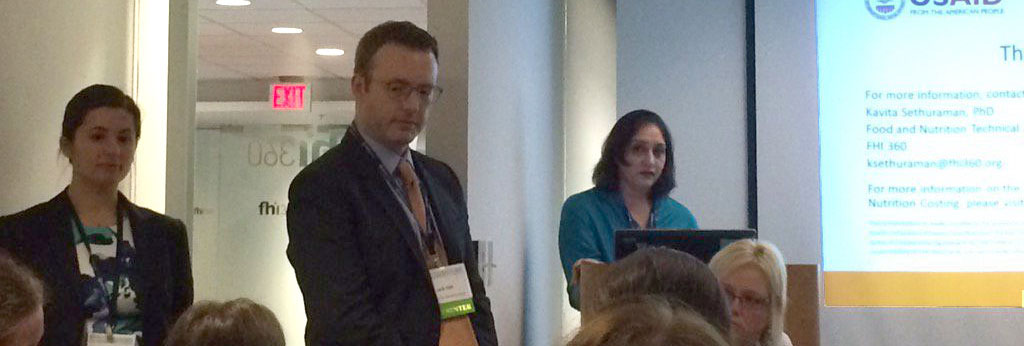
FANTA has collaborated with the CORE Group, particularly the Working Groups on Nutrition, Monitoring and Evaluation, Social and Behavior Change, and HIV, for many years as part of its support for the US Agency for International Development (USAID)’s Child Survival and Health Network Program (CSHNP). The CORE Group fosters collaboration among over 70 organizations that implement CSHNP programs to improve and expand community-focused public health practices for underserved populations around the world, particularly children under 5 years of age and women of reproductive age, through collaborative action and learning. In coordination with several CORE working groups, FANTA also helps plan, develops content for, attends, and participates in the CORE fall and spring meetings and various CORE webinars.
At the CORE Group Fall 2016 Global Health Practitioner Conference on Oct 13–14, 2016, FANTA presented on its nutrition advocacy process in the session titled “New Tools to Support Advocacy for Investing in Nutrition as the Foundation for Development.” In this presentation the newly revised PROFILES tool was described, as well as the body of research showing enormous economic, health, and welfare returns from investments in nutrition and data showing how countries are missing out on these returns because global and country investments in nutrition are still far too low.
The PROFILES tool helps countries calculate the benefits to a country of improved nutrition over a defined time period (e.g., 10 years) as well as the consequences of not improving malnutrition over the same time period by using computer-based models. The two newest PROFILES models estimate the number of children’s lives that could be saved and the number of children that could be prevented from becoming overweight/obese from improved breastfeeding practices. By arming nutrition advocates with concrete estimates of the potential return on nutrition investments, PROFILES provides powerful evidence to support country-level nutrition advocacy.
At the CORE Group conference, community-focused global health practitioners, policy makers, researchers, private sector partners, and donors came together to exchange and learn about community health approaches and good practices, connect with their global health peers, and strategize on joint efforts. The Conference drew 253 participants from seven countries representing 75 organizations and six universities.


